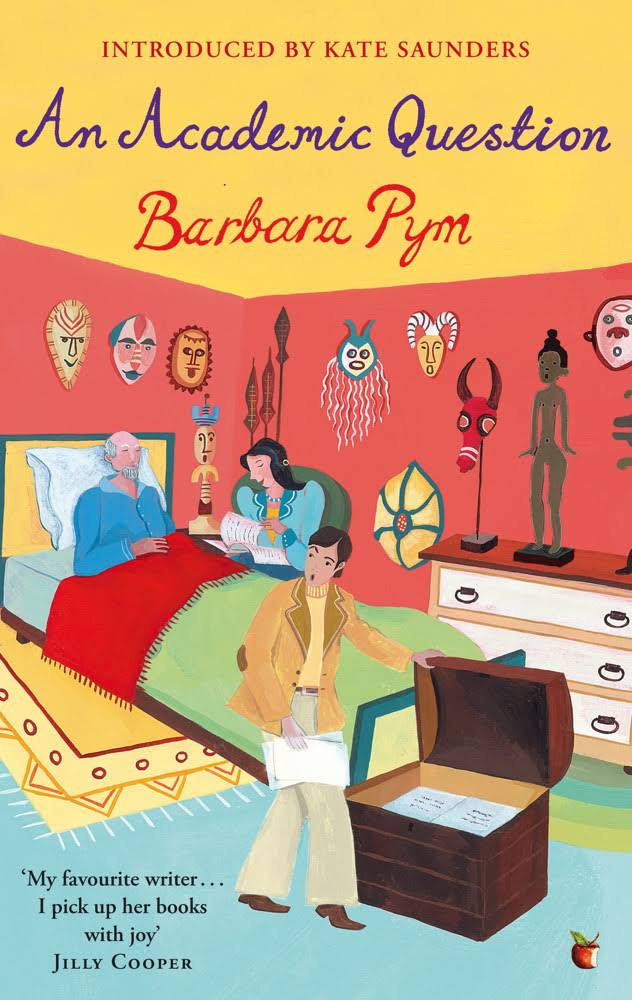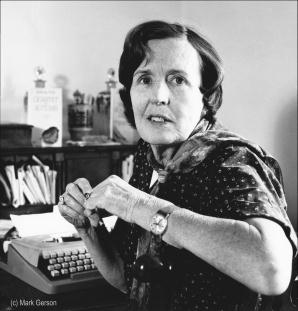Another gentle comedy of manners set among the red bricks of an English provincial university. Our heroine is Caroline, Caro, and her husband Alan Grimstone, who is a lecturer in anthropology at the aforementioned university. The social manners and morēs are very 1950s, though the time is the 1960s. The women are wives and the wives are housewives. Only widows and eccentrics are permitted to be exceptions.

Caro has little to do. Even less than some other faculty wives, because Alan does his own typing, in part, because he is secretive about his research. He is in competition with Professor Crispin Maynard who is head of his department in a narrow field of study, or so Alan thinks. The professor is more concerned with his grandchildren and dogs than with off-prints.
To fill in her days Caro reads to inmates at a nursing home, to call it by its right name, and one of them the Reverend Stillingfleet spent many years in Africa where he wrote notes about the natives’ manners and morēs. By using Caro’s reading as cover, Alan snitches one of Stillingfleet’s notebooks. It contains valuable data which he immediately incorporates into a journal article manuscript, the argument of which undermines the professor’s own work in the field.
Alan does offer the professor the opportunity to read the draft manuscript, but what with grandchildren and dogs, he declines. The clouds gather.
While Alan and Caro are still in possession of the notebook, Stillingfleet dies. Returning the notebook nows seems impossible so Caro keeps it, and Alan acts as if he does not know that, though of course he does.
Alan submits the manuscript and, voilà, it is accepted. If only it was ever that fast and easy!
He goes to London to correct the proofs to speed the process even more.
Caro moons around, wondering what to do with herself. She does not want a part-time job at the university library, which Alan thinks suitable, because she does not like the people in the library. She considers work in a jumble shop, but Alan does not find that suitable. This is a time and place when women often were introduced as ‘Mrs. Alan Grimstone,’ without even their own given name being, well, given.
She wonders if Alan is unfaithful to her, since he is often out at nocturnal seminars, and those trips to London to correct the proofs do go on. There are temptations in Iris, Inga, and Cressida.
She has some friends but they get on with their own business. Coco, Kitty, and Dolly, each seems to have a better grip on reality than Caro and they do buck her up from time to time. But well, Coco is a man who is apparently asexual, and with his mother, Kitty, together mentally they still live on the Caribbean island surrounded by servants as they were when Kitty’s late husband was governor, and so they are not entirely reliable. There is ever so faint an indication that Coco is homosexual. Dolly, who is Kitty’s down to earth sister, is the most practical person in the book, but she is rather obsessed by the life, loves, and deaths of the hedgehogs that inhabit her rambling garden. Any personal confidences shared with her inevitably are compared to the doings of the hedgehogs, which Caro finds rather…..
Alan admits a dalliance in London with Cressida, and expects their life to continue as before. He is man of his time and place, he cannot make tea, make a bed, prepare toast, etc. After retreating to stay with her mother and then sister a few nights, Caro returns to Alan and nothing more is said of the dalliance. Stiff upper lips and all that.
Alan’s paper is published, Maynard writes a rebuttal. Stillingfleet’s manuscript is lost to an accidental fire in the library to which he gave his papers, but the war of words between Alan and Maynard goes on in the pages of the journal, while they invite each other to tea at home and talk of the seasons. All very civilized.
Along the way, Alan asks Caro to do some typing for him, and she greets this as bridge between them. She will now be permitted to help him and take an interest in his work. He means it that way, and she takes it that way. I took it as satire.
Caro returns to the nursing home to read to others, and finds another elderly person with a trunk of papers….
There is a reference to Miss Clovis from Pym’s earlier novel, Less than Angels (1955). Some incidents seemed to set up for development in later novels, but this was her last.
 Barbara Pym at the typewriter.
Barbara Pym at the typewriter.
The telling probably deadens it but in the reading it is light and breezy, and any members of a university or college department will recognise the types, the ambitions, the moans and groans of a nine-hour a week work-load, the quiet desperation of some women to breath in the manners and morēs of the time and place, the restive students….
